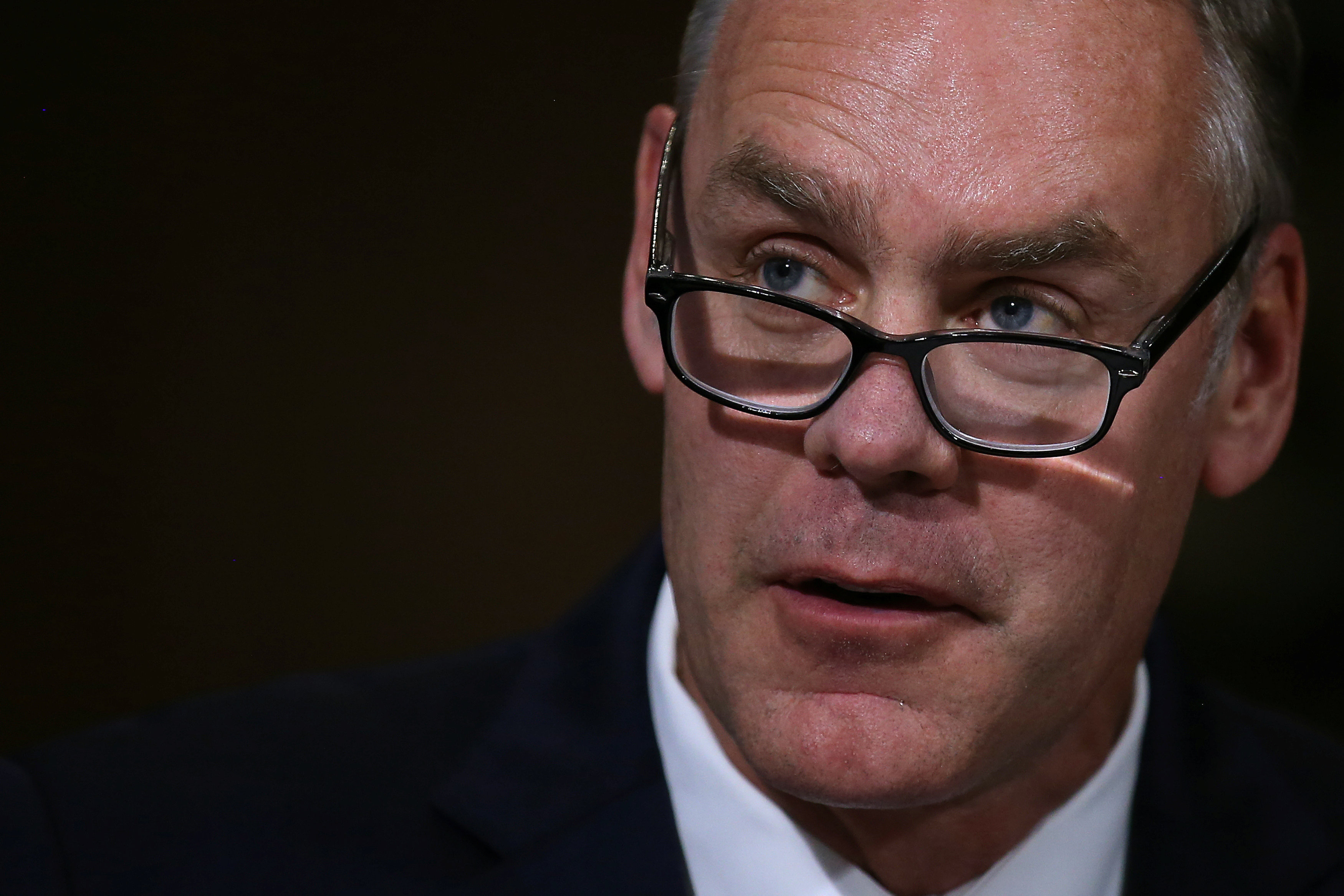Zinke defends Trump’s sharp cuts at Interior. ‘This is what a balanced budget looks like.’
WASHINGTON — Interior Secretary Ryan Zinke on Tuesday defended the $1.6 billion funding cuts President Donald Trump has proposed for his department, telling a Senate hearing that “this is what a balanced budget looks like.”
But Democrats on the Committee on Energy and Natural Resources took issue with the $400 million that the national parks would lose in fiscal 2018, which they said would trigger staff reductions at 90 percent of them. They also questioned the $370 million in cuts the Bureau of Indian Affairs would face, including for education and assistance programs, and $163 million in cuts to the U.S. Geological Survey.

Sen. Maria Cantwell of Washington, the committee’s ranking Democrat, insisted the proposed budget “would devastate our national parks.” And the reductions for Indian Affairs cut “betrays the secretary’s dedication to Native tribes,” she charged.
Republicans, on the other hand, applauded the Trump administration’s proposals to invest in energy exploration on public lands, including a controversial move to open the Arctic to oil and gas exploration after the Obama administration closed it.
[Interior secretary vows to reinvigorate Alaska oil industry]
At a time when the administration has instituted a policy against allowing agencies to respond to information requests from Democrats, those on the committee took the opportunity to pepper Zinke with questions unrelated to the budget.
The department’s review of the Bears Ears National Historic Monument in Utah and Zinke’s recommendation to reduce its 1.3 million-acre designation was called “illegal” by one member. Another said the secretary’s statement that Native tribes “were happy” with the outcome was patently untrue. Yet another took issue with Interior’s attempt to change a methane rule without public comment and other required procedural steps.
Zinke was pointed in describing the president’s reasons for seeking royalties from energy exploration on public lands and offshore. “In 2008, made $18 billion in offshore revenue alone,” he said, compared to $2.6 billion last year, a drop of more than $15 billion. That amount would cover the $11.5 billion infrastructure repair backlog facing the National Park Service in a single year, the secretary said.
“I support the president’s budget,” Zinke said, tough decisions and all. “It does not favor oil and gas and coal over any other strategy.”
Committee Chairwoman Lisa Murkowski, R-Alaska, supported Trump’s effort to seek revenue from gas exploration in her state, which she said has the nation’s highest unemployment rate. According to Murkowski, developing “one-ten-thousandth” of Arctic refuge would generate tens of millions of dollars and create much needed jobs.

Murkowski said she found the budget request reasonable. “It asks us to look at areas where we can cut spending and take care of land in hand rather than buying more,” she said.
That’s exactly what the president intends with his 84 percent cut of Interior’s Land and Water Conservation program, Zinke said. As opposed to buying more, the country should do more to take care of what it has, he stressed.
But Sen. Mazie Hirono, D-Hawaii, said the proposal is ill-timed for her state. Hawaii is the nation’s only state without a national forest, though it has several major landowners willing to change that distinction by selling land to the government. “You were a big supporter of the Land and Water Conservation Fund in your confirmation hearing,” she said. “Has that changed?”
Zinke responded that oil and gas revenue helps pay for land acquisition. Hirono wasn’t persuaded. “There are private industries that have waited for years, and suddenly the pipeline is closed,” she said.
Cuts to national parks such as Yellowstone and Glacier at a time when visitation is on the rise were decried even by a Republican, Steve Daines of Montana. Zinke replied that staffing problems could be solved in part by having fewer middle management positions as part of a reorganization to put more employees in the field.
One of the most pointed exchanges came as several senators singled out the reductions proposed for Indian Affairs, particularly a $23 million decrease for the Bureau of Indian Education on top of millions of dollars less for social services and financial assistance programs.
“Those of us who serve on an Indian Affairs committee just know how woefully underfunded the tribes are,” said Sen. Al Franken, D-Minn. “How do these cuts support sovereignty?”
Zinke repeated himself: “This is what a balanced budget looks like.”
Franken looked up from notes he was reading. “There are ways to balance the budget other than on the backs of tribes.”
“It’s unfortunate,” Zinke said.